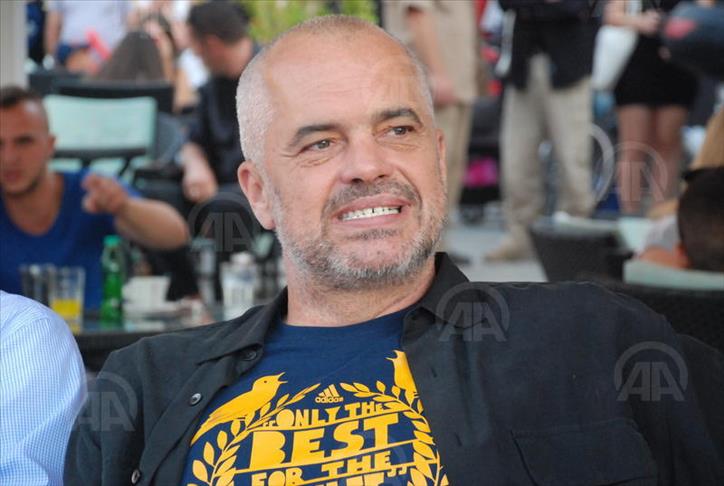
TIRANA, Albania
The Albanian prime minister’s visit to Serbia has been postponed to November 10 as tensions between the two countries mounted in the aftermath of a violence-stricken football match on October 14, it was announced Sunday.
Prime Minister Edi Rama was scheduled to make his visit to Belgrade on October 22, the first by an Albanian premier in 68 years.
According to a statement issued by the Albanian prime minister’s office, Rama spoke with Serbian Prime Minister Alexander Vucic on Sunday in which both leaders agreed that violent incidents that accompanied the Serbia-Albania match had been “extremely undesirable.”
“The two prime ministers clearly disagreed with what happened in Belgrade, but they agreed they must not and will not lose the opportunity to meet and work together in the interest of regional stability, and open a new chapter in bilateral economic and political relations,” the statement said.
Tensions between the two countries remained high in the aftermath of a Euro 2016 qualifying match that was abandoned when chaos erupted on the pitch.
Serbia blamed the incident on a “controversial” flag attached to a drone that flew over the pitch during the match, calling it a “provocation”. The flag depicted a map that showed areas where ethnic Albanians live in the Balkans, including Kosovo and parts of Serbia.
Albania blamed Serbian fans for desecrating their flag, abusing them and throwing hard objects on the football field. Albanian authorities also accused Serbian fans and Serbian security forces for manhandling the Albanian players.
Despite this, Albanian prime minister Edi Rama, said during an interview on CNN last Friday that he was ready to go to Serbia, if the Serbians were ready to host him, while Serbian prime minister replied saying that he would decide over the weekend.
Albanians and Serbians are still at odds due to the long-running tensions between the two countries over the Kosovo Republic, which has a majority of ethnic Albanian population that remained under Serbia during the last century.
Serbian soldiers killed more than 10,000 Kosovo Albanians during the Kosovo war between 1998 and 1999. The war between Kosovo Liberation Army and Serbian forces came to an end after NATO intervened.
Kosovo declared its independence in February 2008. More than 100 states, including the U.S, France, Germany and Turkey have already recognized the country. Serbia still does not recognize the country.
Anadolu Agency website contains only a portion of the news stories offered to subscribers in the AA News Broadcasting System (HAS), and in summarized form. Please contact us for subscription options.

